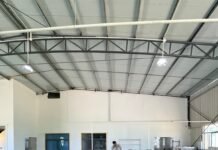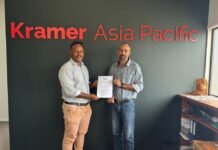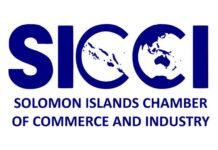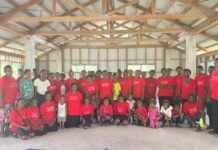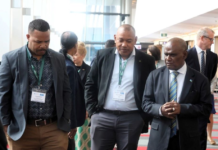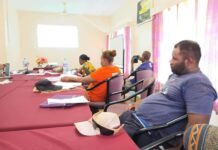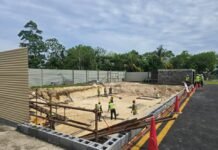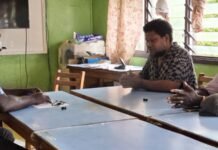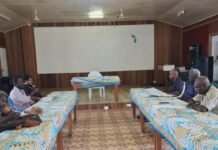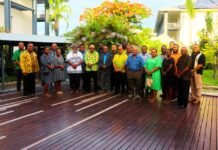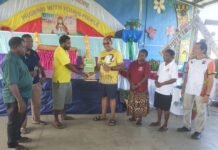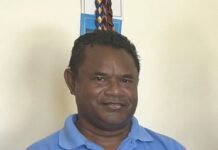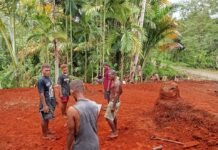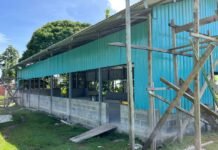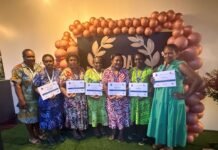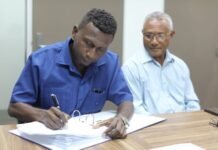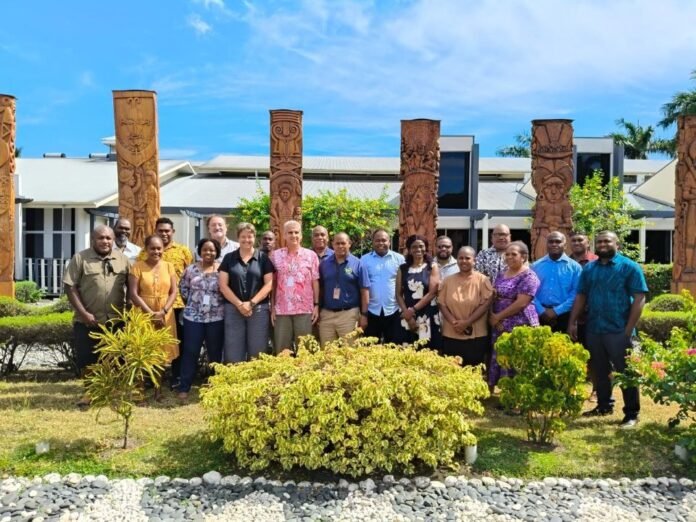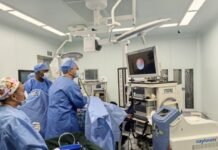THE Ministry of Health and Medical Services (MHMS) partnered with World Health Organization (WHO) to host a stakeholder consultation to review and update the 2015 National Medicines Policy. Held recently at the Heritage Park Hotel in Honiara, the event gathered key voices from across the health sector to gather their perspectives and inputs and identify any gaps in the current policy.
Representatives from various government agencies, the National Referral Hospital, civil society organizations, the private sector, and international development partners, including WHO and Australia’s Department of Foreign Affairs and Trade (DFAT), contributed their expertise to shaping this crucial policy.
Mr. Solomon Bosa, Acting Director of the National Pharmacy Services Division at MHMS, welcomed all participants to the presentation of the revised policy. “I am pleased to receive the invaluable contributions of all the stakeholders so that the new policy will meet the intended goal of ensuring equitable access to good quality, safe and effective medicines to all the citizens of the Solomon Islands”.
In his opening remarks, WHO Representative for the Solomon Islands, Dr. Howard L. Sobel, emphasized the crucial role of essential medicines to the nation’s healthcare system.
“Currently, medicine stock-outs, particularly in rural health facilities, present a serious challenge to the Solomon Islands’ healthcare system,” said Dr. Sobel. “The lack of regulation ensuring the availability of quality-assured medicines exacerbates this issue. This National Medicines Policy with enhanced multilateral collaboration, aims to strengthen access to safe, effective, and affordable medicines across the country,” said Dr Sobel.
Highlighting the strong partnership between Solomon Islands and its international partners, Elise Newton, First Secretary for Health at DFAT, reaffirmed Australia’s commitment to supporting equitable healthcare in the country.
“Australia is proud to assist the MHMS in its efforts to ensure all Solomon Islanders can access quality medication, when and where they need it. Access to essential medicines underpins our collective efforts to improve health services in Solomon Islands and create a healthy future for all. The National Medicines Policy provides guidance on access, supply and quality use of medicines in Solomon Islands. We are pleased to collaborate with the MHMS, WHO and other partners to refresh this important document,” said Ms Newton.
The consultation provided an opportunity to examine the policy’s potential to address challenges over the next 10 years, including:
Access to essential medicines: In recent years, there has been a chronic shortage of essential medicines due to factors such as inadequate financing and fragmented distribution systems. The updated policy aims to explore sustainable financing models to supplement government funding, as well as to strengthen the procurement and supply management of all medicines and especially for non-communicable diseases, emergency situations, and palliative care.
Quality and Safety: Currently, there is no mechanism for regulating medicine quality, safety, and efficacy in the Solomon Islands. The updated policy proposes a basic regulatory structure that leverages the capacity of other regulatory authorities through good reliance practices.
Management Support Systems: The implementation of the 2015 National Development Plan (NDP) faced several challenges, including inadequate human resources in the pharmaceutical sector, outdated laws, and the absence of implementation, monitoring, and evaluation plans. The updated policy prioritizes strategies to enhance the production, retention, and deployment of an appropriately trained pharmaceutical workforce, overhaul existing laws and regulations, and establish a costed plan for implementation, monitoring, and evaluation.
The overarching goal of the policy is to ensure that everyone in the Solomon Islands regardless of their location, can receive good quality, effective and safe essential medicines suitable for their health needs.
Feedback from the consultation will be incorporated into the final version of the revised and updated National Medicines Policy, setting the stage for significant improvements in the country’s pharmaceutical sector over the next decade.
WHO continues to work closely with MHMS and other partners to strengthen the Solomon Islands’ health system and improve the wellbeing of its citizens. With this collaborative approach, the National Medicines Policy is set to enhance healthcare delivery, particularly for those in the most remote and vulnerable communities.






